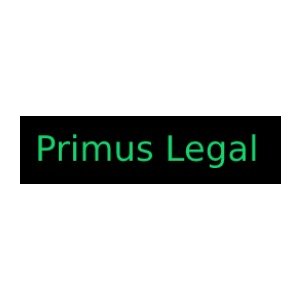Best Oil, Gas & Energy Lawyers in Bangladesh
Share your needs with us, get contacted by law firms.
Free. Takes 2 min.
Or refine your search by selecting a city:
List of the best lawyers in Bangladesh
About Oil, Gas & Energy Law in Bangladesh
Oil, Gas & Energy law in Bangladesh is a crucial sector governing the exploration, extraction, production, and distribution of energy resources within the country. Bangladesh is rich in natural resources, particularly natural gas, and is striving towards energy sufficiency to support its burgeoning economy. The sector is governed by a mix of domestic laws and international agreements, addressing various aspects related to regulatory frameworks, environmental protection, safety standards, and foreign investments. The country is focusing on expanding its renewable energy capacity alongside traditional energy sources, thereby shaping an energy landscape that presents numerous legal challenges and opportunities.
Why You May Need a Lawyer
Legal expertise is often required in the Oil, Gas & Energy sector for a variety of reasons. Individuals and businesses may seek legal advice in situations such as entering into exploration or production-sharing contracts, navigating environmental regulations, dealing with disputes over land acquisition, ensuring compliance with safety standards, securing licenses for operation, or managing foreign investments and joint ventures. Lawyers in this field assist in negotiating agreements, representing parties in disputes, and advising on compliance with national and international regulatory requirements.
Local Laws Overview
Bangladesh's Oil, Gas & Energy sector is regulated by several key laws and policies, including the Bangladesh Oil, Gas, and Mineral Corporation Ordinance, 1985, the Bangladesh Petroleum Act, 1974, and the Gas Act, 2010. The Bangladesh Energy Regulatory Commission (BERC) plays a vital role in regulating the energy market, ensuring fair practices, and protecting consumer interests. Environmental considerations are governed under the Environment Conservation Act, 1995. The legal framework emphasizes sustainable development, balancing the exploitation of resources with environmental protections. Understanding these laws and their implications is essential for operating within the sector.
Frequently Asked Questions
What is the primary regulatory body for energy resources in Bangladesh?
The primary regulatory body is the Bangladesh Energy Regulatory Commission (BERC), responsible for regulating electricity, gas, and petroleum sector operations.
Are there specific environmental regulations applicable to the energy sector?
Yes, the Environment Conservation Act, 1995, outlines regulations to mitigate environmental impact and ensure sustainable energy development.
Can foreign companies invest in Bangladesh's energy sector?
Yes, foreign investments are encouraged in Bangladesh's energy sector under various policies and with oversight to ensure compliance with local laws.
What role does Petrobangla play in the energy sector?
Petrobangla governs the exploration, production, and sale of natural gas and other energy resources, functioning under the Ministry of Energy and Mineral Resources.
How are disputes in the oil and gas sector typically resolved?
Disputes may be resolved through litigation, arbitration, or negotiation, with a focus on amicable solutions and adherence to regulatory provisions.
What licenses are required to operate in the oil and gas sector?
Operators must obtain necessary licenses and approvals from relevant authorities, such as exploration and production licenses, environmental compliances, and safety certificates.
What is the potential for renewable energy in Bangladesh?
Bangladesh has significant potential for renewable energy, particularly solar power, and has set targets to increase its contribution to the national grid.
How does the government support energy efficiency initiatives?
The government implements policies and programs to promote energy efficiency, including incentives for adopting efficient technologies and practices.
Are there restrictions on land acquisition for energy projects?
Yes, land acquisition is subject to specific laws ensuring fair compensation and relocation for affected communities while maintaining project viability.
What is a production-sharing contract?
A production-sharing contract is an agreement where the state permits a company to explore and produce resources, with a stipulated share of production returned to the state.
Additional Resources
For further information or assistance, consider reaching out to the following resources and organizations:
- Bangladesh Energy Regulatory Commission (BERC)
- Petrobangla
- Ministry of Energy and Mineral Resources, Bangladesh
- Environmental Conservation Department
- Bangladesh Investment Development Authority (BIDA)
Next Steps
If you require legal assistance in the Oil, Gas & Energy sector, it's advisable to consult with a lawyer specialized in this field. Begin by researching legal firms with expertise in energy law, assessing their experience with relevant cases, and contacting them to discuss your specific needs. Consider seeking referrals from industry contacts or professional organizations to connect with reputable attorneys. Preparation of necessary documentation and a clear understanding of your objectives will facilitate effective legal counsel and representation.
Lawzana helps you find the best lawyers and law firms in Bangladesh through a curated and pre-screened list of qualified legal professionals. Our platform offers rankings and detailed profiles of attorneys and law firms, allowing you to compare based on practice areas, including Oil, Gas & Energy, experience, and client feedback.
Each profile includes a description of the firm's areas of practice, client reviews, team members and partners, year of establishment, spoken languages, office locations, contact information, social media presence, and any published articles or resources. Most firms on our platform speak English and are experienced in both local and international legal matters.
Get a quote from top-rated law firms in Bangladesh — quickly, securely, and without unnecessary hassle.
Disclaimer:
The information provided on this page is for general informational purposes only and does not constitute legal advice. While we strive to ensure the accuracy and relevance of the content, legal information may change over time, and interpretations of the law can vary. You should always consult with a qualified legal professional for advice specific to your situation.
We disclaim all liability for actions taken or not taken based on the content of this page. If you believe any information is incorrect or outdated, please contact us, and we will review and update it where appropriate.
Browse oil, gas & energy law firms by city in Bangladesh
Refine your search by selecting a city.

















